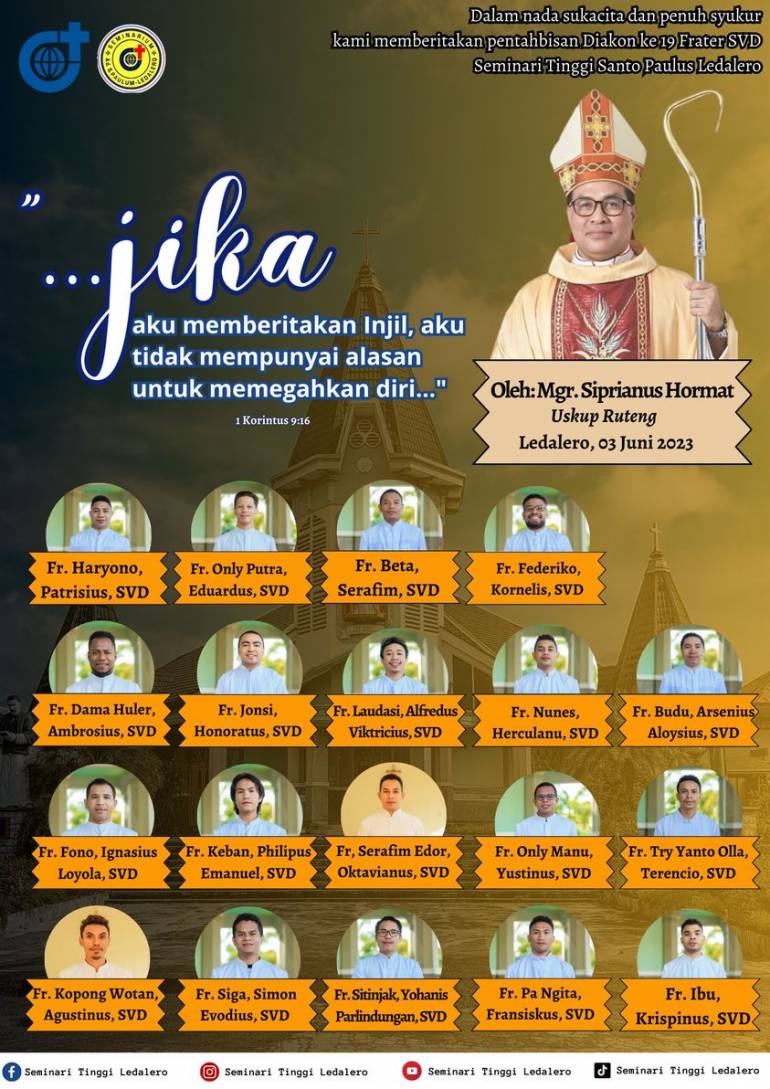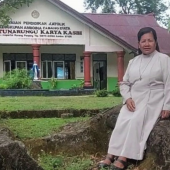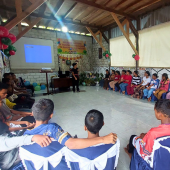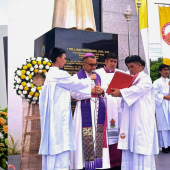19 Divine Word Missionaries ordained deacons in Indonesia

As many as 19 Divine Word Missionary candidates were ordained deacons at the Grand Chapel of Saint Paul's High Seminary, Ledalero, Maumere Flores, Indonesia, on June 3.
The ordaining prelate was Siprianus Hormat, Bishop of Ruteng, Flores.
In his homily, Bishop Hormat spoke about the foundation of the Church's (and deacons') priesthood ministry, which is the tripartite dimension of ministry, as well as the "guarantee" that our ministry will significantly impact the salvation of the people.
"The "solidity" of these three essential dimensions will guide the movement of a ministerial servant of God. The integrity of these three dimensions, according to Bishop Hormat, enables a servant of God to "stand" courageously in the face of even the most complex demands and challenges of ministry.
The prelate said that in our ministry context, it is no longer a secret that there is a temptation to follow religious leaders' views on authority and power.
"Authority and power can make us "slip" and become "trapped" in the hall of hubris. A deacon must maintain this comprehension. However, we are reminded that genuine service is not about power but love, faithfulness, and submission to God's will.
According to the bishop, deacons must reach the point of "acknowledgment," not "egotism," and this authority must be exercised prudently. Our policy standard for missionary service is to serve for His glorification and the benefit of His people (the Church).
The new Divine Word missionary deacons will be assigned to different parts of the world, including Indonesia.
Despite Indonesia's predominantly Muslim population, there is a massive demand for becoming candidates in its Catholic seminaries.
The largest seminary in the world is located on a hill in the middle of a rainforest on the island of Flores.
One of the islands of the Lesser Sunda Islands, which are in Indonesia's eastern half, is Flores. Previously hidden in the shadows of its well-known neighbor Bali, Flores Island is now blossoming as a tropical haven. It is called Indonesia's gorgeous eastern flower.
Annually, over 1,000 pupils reportedly enroll in Ledalero, and at least 600 are priesthood aspirants.
On the island of Flores, the Divine Word Missionaries have been working since 1912. In Indonesia now, there are around 2,000 Divine Word priests and brothers.
Ledalero was essentially desolate before the arrival of the missionaries. The natives stayed away from the area because they thought it was home to terrible spirits.
Ledalero has changed since a Catholic seminary was built there. Now, Catholics everywhere, not only those in Indonesia, have a favorable opinion of it.
Priests are trained at the seminary at Ledalero to go into the world and preach the gospel while also working against injustice, poverty, and the social development of all people worldwide.
To become Catholic priests, Indonesian students at Ledalero study philosophy and theology.
Catholics comprise 70% of the island of Flores, even though 85% of Indonesia's population is Muslim.
In the Indonesian religious landscape, the island of Flores is an exception.
On Flores, where they comprise 70% of the population, Catholics outnumber Muslims, who comprise 85% of the archipelago's residents. Their rituals of Holy Week, which feature a magnificent procession of sculptures of Tuan Ma (Mother Mary) and Tuan Ana (Jesus Christ), which culminates on Good Friday, are only one example of how they have evolved their styles of popular piety.
Various Catholic devotions, different church activities, strong faith expressions of Catholic families, and missionary witnesses of priests, nuns, and laity, among others, are the reasons for a higher rate of vocations to the priesthood and religious lives in Flores. – Santosh Digal
Radio Veritas Asia (RVA), a media platform of the Catholic Church, aims to share Christ. RVA started in 1969 as a continental Catholic radio station to serve Asian countries in their respective local language, thus earning the tag “the Voice of Asian Christianity.” Responding to the emerging context, RVA embraced media platforms to connect with the global Asian audience via its 21 language websites and various social media platforms.














